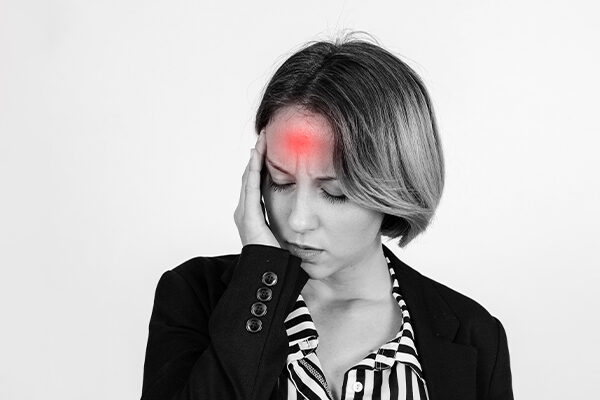Sleep apnea isn’t just about loud snoring; it’s a serious medical condition that causes repeated interruptions in breathing while sleeping. These pauses, known as apneas, can last from a few seconds to minutes and occur multiple times an hour. The consequences? Extreme fatigue, cognitive decline, and an increased risk of life-threatening diseases like heart disease and diabetes.
Did You Know?
- An estimated 936 million people worldwide suffer from obstructive sleep apnea (OSA), yet many remain undiagnosed. Even more shocking?
- People with untreated OSA are up to 2.5 times more likely to be involved in a car accident due to excessive daytime sleepiness. If that doesn’t make you sit up and take notice, what will?
Types of Sleep Apnea
- Obstructive Sleep Apnea (OSA): The most common type, where throat muscles relax excessively and block airflow.
- Central Sleep Apnea: A rare condition where the brain fails to send proper signals to control breathing.
- Complex Sleep Apnea Syndrome: A mix of OSA and central sleep apnea.
With OSA being the most widespread, the question arises; is sleep apnea a disability? Let’s explore.
Is Sleep Apnea a Disability?
From a medical standpoint, sleep apnea can be disabling, but not everyone with the condition qualifies for disability benefits. Many countries, including the U.S., recognize severe OSA as a disability if it significantly interferes with work and daily life.
The Social Security Administration (SSA) doesn’t list sleep apnea as a standalone disability, but individuals may qualify under related conditions like chronic pulmonary hypertension, heart failure, or severe cognitive impairment. This means that whether or not sleep apnea is classified as a disability depends on its severity and impact on daily function.
Real-World Impact: Work Disability and Sleep Apnea
A study conducted at the University of California, San Francisco Sleep Disorders Center examined the relationship between OSA and work disability. Researchers analyzed 183 patients suspected of having OSA, assessing their work performance, excessive daytime sleepiness (EDS), and disability claims.
- 83 patients were officially diagnosed with OSA.
- Those with both OSA and EDS were at a 13.7 times higher risk of recent work disability.
- Patients with untreated OSA had a 2.6 times higher risk of work disability compared to those without the condition.
This study strongly suggests that severe OSA can limit a person’s ability to function effectively in a work setting, making it an important consideration for disability benefits.
The Sleep Apnea and Weight Gain Connection
Here’s a surprising fact: Sleep apnea causes weight gain! It’s a vicious cycle; excess weight increases the risk of sleep apnea, and in turn, sleep apnea contributes to further weight gain by disrupting hormones that regulate hunger and metabolism.
Research has shown that sleep apnea leads to increased levels of ghrelin (the hunger hormone) and decreased levels of leptin (the hormone that signals fullness). This imbalance causes excessive cravings for high-calorie foods, making weight loss an uphill battle. This raises another important question; is sleep apnea a disability? Given its impact on metabolism, energy levels, and overall health, severe cases may qualify under disability criteria depending on individual circumstances.
Can Sleep Apnea Be Genetic?
While lifestyle factors like obesity and smoking contribute to sleep apnea, sleep apnea due to genetics is also a real possibility. Studies have identified genetic links in airway structure, fat distribution, and neurological control of breathing that can predispose individuals to developing OSA. If a close family member has sleep apnea, your risk increases significantly.
Necessary Precautions: Take Charge of Your Sleep Health
So, what can you do to manage sleep apnea effectively? Here are some essential steps:
1. Prioritize Sleep Hygiene:
- Maintain a consistent sleep schedule.
- Avoid alcohol and sedatives before bedtime.
- Keep your bedroom dark, quiet, and at a cool temperature.
2. Maintain a Healthy Weight:
- Losing even 10% of your body weight can drastically improve OSA symptoms.
- Engage in regular exercise, especially cardio and strength training.
3. Sleep in the Right Position:
- Avoid sleeping on your back, as it increases airway blockage.
- Use a wedge pillow or elevate your head to improve airflow.
4. Consider Medical Treatments:
- CPAP Therapy: The gold standard for OSA treatment.
- Oral Appliances: Devices that keep the airway open.
- Surgery: In severe cases, procedures like UPPP (Uvulopalatopharyngoplasty) may help.
Why Employers Should Take Sleep Apnea Seriously
The workplace implications of sleep apnea are staggering. Studies have linked untreated OSA to decreased productivity, increased absenteeism, and a higher likelihood of workplace accidents.

Employers should consider:
- Screening employees for sleep apnea in high-risk professions (e.g., truck drivers, pilots).
- Allowing flexible work schedules for individuals undergoing treatment.
- Providing wellness programs that address sleep disorders.
Latest Research and Developments
Recent advancements offer hope for those grappling with sleep apnea:
- FDA Approves Zepbound: In December 2024, the U.S. Food and Drug Administration approved Zepbound (tirzepatide) as the first medication for treating moderate to severe obstructive sleep apnea in adults with obesity. Clinical trials demonstrated that Zepbound helped overweight or obese patients with sleep apnea reduce their episodes of interrupted breathing by 63%.
- Innovative Monitoring Solutions: Researchers at the University of Cambridge have developed washable “smart pajamas” embedded with fabric sensors that detect skin movements to monitor breathing. This innovation allows for comfortable, at-home monitoring of sleep disorders, providing accurate data without the need for traditional sleep studies.
Final Thoughts: Raising Awareness and Taking Action
So, is sleep apnea a disability? The answer isn’t black and white, it depends on severity, impact on daily life, and co-existing conditions. What’s clear is that sleep apnea is a serious health concern that deserves more attention, both medically and in the workplace.
If you suspect you have sleep apnea, don’t ignore the symptoms. Seek medical advice, explore treatment options, and take proactive steps to improve your sleep quality. Remember—better sleep leads to a better life!




